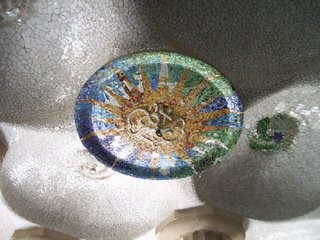Off with Her Head
Over the weekend, I saw Marie Antoinette. I had been looking forward to it for ages, because I really like Sofia Coppola as a director (we try to forget about her brief flirtation with “acting”*) and I’m a huge history dork with a soft spot for queens who lost their heads. Unfortunately, I had some issues with it. (Shocking, I know. As you’ve probably realized by now, I tend to have issues with everything.)
(Two warnings about what’s to come: spoilers and extreme dorkiness. Don’t say you weren’t warned.)
It’s really visually stunning, and it definitely works on an eye-candy level. However, the story doesn’t hold together very well. It’s just a series of cool-looking scenes thrown together without much thought for coherency. For example, we see Marie Antoinette have an affair with the handsome Swede Count Axel Fersen. First of all, there is no proof that the affair happened. Certainly, they had a relationship, but whether it was physical is impossible to say, since Marie Antoinette didn’t leave any evidence behind. (If only she had: Dear Diary, I totally hooked up with Axel last night. He’s like from
Coppola chose to end the film with MA and Louis leaving
Not that it was all bad: I did think some parts of the film were extremely effective. The portrayal of the elaborate rituals that surrounded every move the royal family made were very well done. And the constant whispering that surrounds MA at
If you are at all interested in it, I would certainly recommend seeing it, as despite my complaints, there is a lot of good in it, and if you’re not all that interested in the dorky historical details, the good may outweigh the bad.
*But we were in favor of her designing career, except that we’ve always been bitter that none of her cute clothes fit us because they are made for women with freakishly long torsos (or perhaps we just have a freakishly short torso?).
**Louis and some of his siblings were rather corpulent. It’s said that when Marie Antoinette first arrived in


0 Comments:
Post a Comment
<< Home